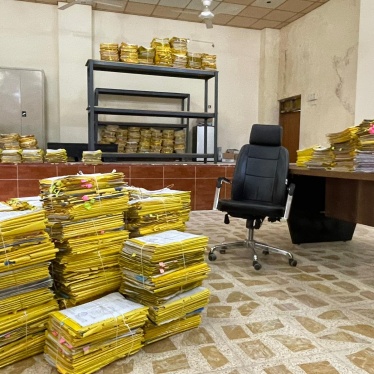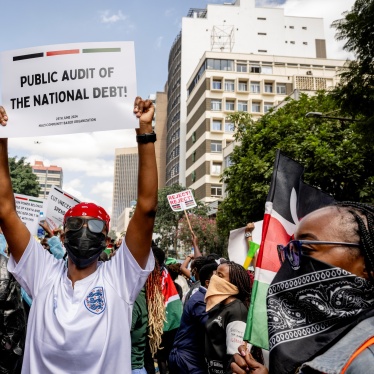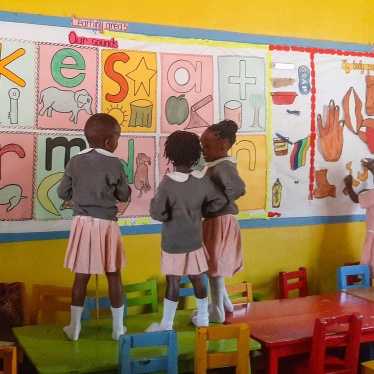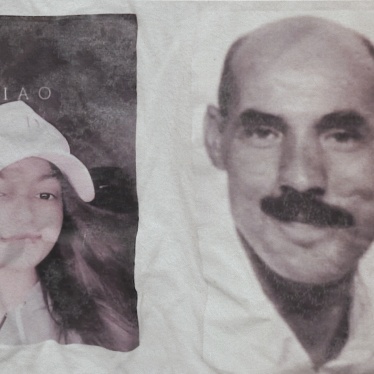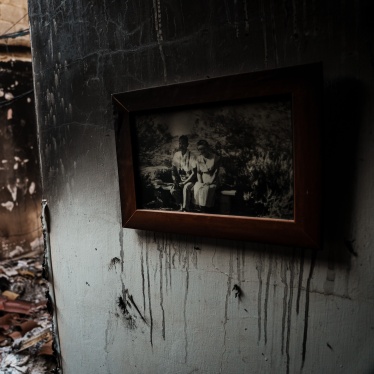Dear Mr. Solheim,
As a group of civil society organizations dedicated to the full realization of human rights in the United States, we are writing to urge you to protect workers’ rights by honoring your June 2015 commitment to enter into a legally binding agreement to join the Milk with Dignity Program. Protecting workers’ rights is a key tenet of Ben & Jerry’s corporate mission,
The Need for Greater Protections for Workers’ Rights in the Vermont Dairy Industry
Farmworkers’ rights are too often unfulfilled in Vermont. A 2014 survey of 172 dairy workers across Vermont by the worker organization Migrant Justice revealed that on average individuals work 60-80 hour weeks, often for less than minimum wage, with no day off, and with inadequate protections against workplace injury and illness.
Further, farmworkers in the United States, including in Vermont, have historically been – and continue to be – excluded from labor legislation protecting workers’ rights to organize, collectively bargain, and raise grievances without facing retaliation. This lack of legal protections, coupled with the discrimination faced by farmworkers as a disproportionately immigrant, Latino, and non-English speaking workforce, make farmworkers uniquely vulnerable to abuse and obstruct their ability to address infringements of their rights directly with their employers or at the state and federal level.
The conditions on some dairy farms in Vermont stand in stark contrast to Ben & Jerry’s public commitments to workers’ rights. The company has recently highlighted its social mission aimed to “impact human rights, workers’ rights, and social justice.”
Ben & Jerry’s public statements signal a commitment to respecting the dignity and human rights of workers on dairy farms, which include rights to just and favorable conditions of work, an adequate standard of living, and a life of security, peace, and dignity. To deliver on its social justice mission, Ben & Jerry’s should now honor its promise to join the Milk with Dignity Program.
Joining the Milk with Dignity Program is Critical to Advance Ben & Jerry’s Commitment to Workers’ Rights
The Milk with Dignity Program exemplifies Worker-Driven Social Responsibility (WSR), an innovative approach led by workers to protect and promote workers’ human rights while fostering change in supplier culture and supporting long-term sustainability on farms. Under the WSR model, buyers in a supply-chain agree to only purchase a product from suppliers that agree to, and are in good standing with, a rights-based code of conduct designed by and for workers. Milk with Dignity, like other WSR programs, is defined by three key features that distinguish it from corporate-led initiatives. Milk with Dignity: (1) involves workers in drafting, designing, and monitoring the program; (2) includes independent and continuous monitoring mechanisms; and (3) ensures compliance through legally binding enforcement mechanisms with concrete market consequences for employers that fail to make improvements.
Each of these elements of the Milk with Dignity Program represents an independent, yet interconnected reason for Ben & Jerry’s to join the Milk with Dignity Program:
First, Ben & Jerry’s should join the Milk with Dignity Program because workers play an essential role both in designing the program to best protect workers’ rights, and monitoring the program to ensure lasting improvements. In the WSR model, workers draft specific standards for the code of conduct, design the structures to independently assess and remedy breaches of those standards, and are the primary drivers for identifying non-compliance through worker-to-worker training, as well as through individual complaints. This level of worker participation is not only required by human rights standards that protect everyone’s rights to meaningfully participate in decisions that affect their lives and well-being, but is essential for the efficacy of any initiative to improve workers’ rights in the supply chain.
Workers are in the best position to define their own needs, identify when these needs are not met, and to understand when their rights are violated. It is thus essential that workers play a lead role in drafting codes of conduct to ensure that the substantive protections they contain are tailored to the specific industry and local context and cover key areas of worker concern.
Worker participation is also essential when it comes to monitoring the code of conduct, as workers are best placed to identify breaches of the code, and indeed in many cases are the only actors capable of exposing violations. Failure to adequately include workers in a monitoring program undermines workers’ trust in the program and risks numerous breaches going undiscovered.
Entering into a binding agreement to join the Milk with Dignity Program would recognize and ensure the essential role of workers in fully understanding and addressing workplace abuses.
Second, Ben & Jerry’s should join the Milk with Dignity Program because continuous and independent monitoring is essential to encourage compliance and to ensure that breaches of the code are effectively investigated and addressed. Under the WSR model, an independent monitoring body with specialized expertise is set up with the agreement of workers and buyers in the supply chain to receive, investigate, and adjudicate worker complaints of breaches of the code of conduct. The monitor additionally conducts periodic audits involving site visits and worker interviews. In this way, the independent monitor works closely with workers to identify potential breaches of the code. The monitor investigates and determines breaches, and designs remediation plans, with an appeal mechanism for resolving any dispute regarding the existence of a violation. Such monitoring is essential to obtain a clear and credible picture of what happens on farms, to identify real or potential rights violations, and to effectively improve conditions in the long-term.
By contrast, where a monitoring program relies on employer self-assessments, or where consultants are unilaterally selected by a corporation to perform periodic audits, there is no guarantee of adequate independence, or that all violations will be identified. Employers may face structural impediments to discovering all violations and may have incentives to distort conditions when conducting selfassessments, and monitoring bodies that are largely funded or selected by corporations are particularly susceptible to real or perceived bias. Where corporate-selected monitors are relied upon, there are numerous examples of employers modifying practices immediately before an audit they were informed was coming, or coaching survivors to lie to inspectors about working conditions under threat of dismissal.
The Milk with Dignity Program is designed to ensure accurate monitoring. The monitoring entity, the Standards Council, is shaped with worker and company participation and buy-in, but maintains independent relationships with all stakeholders. Its dual pronged approach of a 24-hour hotline to identify concerns, combined with periodic audits, is designed to ensure that workplace abuses are identified and quickly addressed at the earliest stage possible.
Third, Ben & Jerry’s should join the Milk with Dignity Program because it ensures that farms are held accountable for remedying violations of the code of conduct, with concrete market consequences where farms fail to make improvements. The WSR model includes structures to enforce the code of conduct built into the program itself – particularly important in low-wage sectors with high turnover, such as farming, where governmental intervention has proven inadequate to sufficiently curb abuses, and where litigation can lead to inadequate remedies. Under WSR, buyers in supply-chains sign legally binding agreements to purchase only from suppliers in good standing with the program. This produces a market incentive for suppliers to enter the program and to adhere to the program’s code of conduct. The Milk with Dignity program fosters a collaborative, gradual approach to compliance through corrective action plans and ongoing monitoring for most breaches of the code. Market consequences will be automatically triggered only in cases of limited, severe rights violations – such as forced labor or physical violence – and otherwise will only apply where an employer fails to make improvements in line with an action plan. This creates concrete financial incentives for employers to honor the code of conduct.
By contrast, approaches to advancing workers’ rights and safety that lack strong enforcement mechanisms are likely to be ineffective, as well as potentially dangerous. Absent structures that impose direct and immediate market consequences, supply-chain initiatives may not be able to ensure that non-compliance is adequately remedied. Programs such as the “Common Code for the Coffee Community” (now part of the Global Coffee Platform), for example – which allowed non-complying coffee growers to continue to benefit from the license to sell “4C Coffee” as long as they could show they were taking some “action,” even if that action proved ineffective – have thus been roundly criticized for failing to adequately enforce the program’s standards.
Under the WSR model, workers need not rely on the good will and voluntary action of employers to safeguard their rights, as they can utilize independent enforcement mechanisms that they established in agreement with buyers. In addition, worker participation in designing complaint mechanisms and responses fosters an accessible and transparent approach to remediation of violations, consistent with human rights standards.
In summary, WSR models overcome the shortcomings of alternative approaches in protecting workers’ basic dignity and human rights to fair working conditions, health, and safety. Moreover, WSR programs have already been successfully implemented elsewhere. The Fair Food Program, established by the Coalition of Immokalee Workers in the tomato industry in Florida is a powerful example of a regime with full worker participation in monitoring and enforcement that delivers real accountability for workers. U.N. experts on business and human rights praised the Fair Food Program as a “groundbreaking model” for promoting labor rights in partnership with farmworkers, providing a model for protecting human rights in corporate supply chains that “ensures a substantive role for the rights holders themselves.”
The Milk with Dignity Program promises similar transformational reforms for the dairy industry in Vermont, and presents a valuable opportunity for Ben & Jerry’s to establish itself as an industry leader. We thus call on Ben & Jerry’s to enter into a legally binding agreement to make the Milk with Dignity Program operational.
Sincerely,
American Civil Liberties Union Human Rights Program
Center for Constitutional Rights
Coalition of Immokalee Workers
Columbia Law School Human Rights Clinic
International Federation for Human Rights (FIDH)
Freedom Network USA
Global Justice Clinic, NYU School of Law*
Human Rights Watch
National Center for Law and Economic Justice
National Economic and Social Rights Initiative
Robert F. Kennedy Human Rights
The Centre for Research on Multinational Corporations (SOMO)
US Human Rights Network
T’ruah
Worker Rights Consortium
*Communications from NYU clinics do not purport to be an expression of the views, if any, of NYU School of Law.
